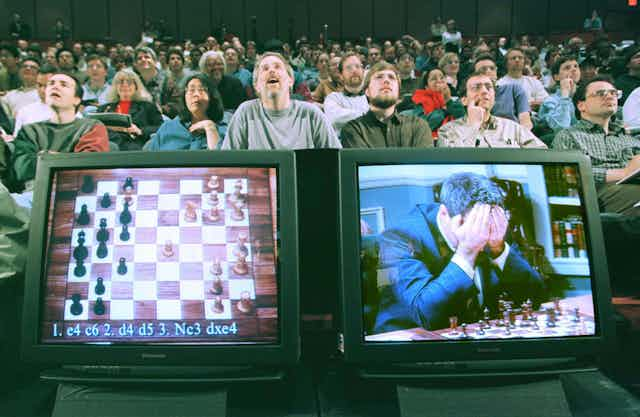

In 1997, a historic event shook the chess world and changed the dynamic between human and artificial intelligence. The reigning world champion, Garry Kasparov, competed against Deep Blue, a supercomputer built to compete against the world's best human chess players. The six-game chess match redefined chess and is hailed as a pivotal turning point in AI development in general.
This match between Kasparov and Deep Blue was the second encounter between them. In 1996 they already faced each other, resulting in a comfortable win for Kasparov. However, the computational power of Deep Blue was increased, making it able to calculate over 200 million different positions per second. This significant increase in processing power changed the matchup completely. The rematch in 1997 saw Deep Blue winning with 3.5 against 2.5, resulting in the first defeat of a world champion against a machine under standard tournament conditions.
In this matchup, Kasparov and Deep Blue played according to a best-of-seven format. The most controversial moment came from the second round, where Kasparov suspected human intervention when Deep Blue played an unconventional strong move. The suspicion of Kasparov has never been confirmed due to the lack of evidence that showed a human adjustment to Deep Blue’s strategy.
Undoubtedly, the most important element in this race was the psychological aspect of it. Kasparov was used to having the upper hand on the psychological level and being assured when playing against other human beings. But in this match against Deep Blue, it was different because the machine did not respond with any form of exhaustion or emotionality. Kasparov became increasingly frustrated during game number six, which led him to commit a fatal mistake that left Deep Blue a winner.
This same game not only stunned the chess world, but it shook the world of chess to its core. This game demonstrated that AI was better than humans at doing some tasks. It accelerated overall research on machine learning and strategic computation. Current chess engines are way more advanced than Deep Blue, but the match from 1997 remains a crucial moment in the history of AI development.
When reflecting on the match, Kasparov showed a mix of frustration and admiration. He first opposed the fact that technology could beat the best chess player in the world, but later on he embraced the role of AI in chess training and in the preparation of matches. While machines have won the battle of chess against humans, it also helped humans understand intelligence and strategic thinking in new ways.
References:
Chess.com
Hercules Chess
Medium
AI Business